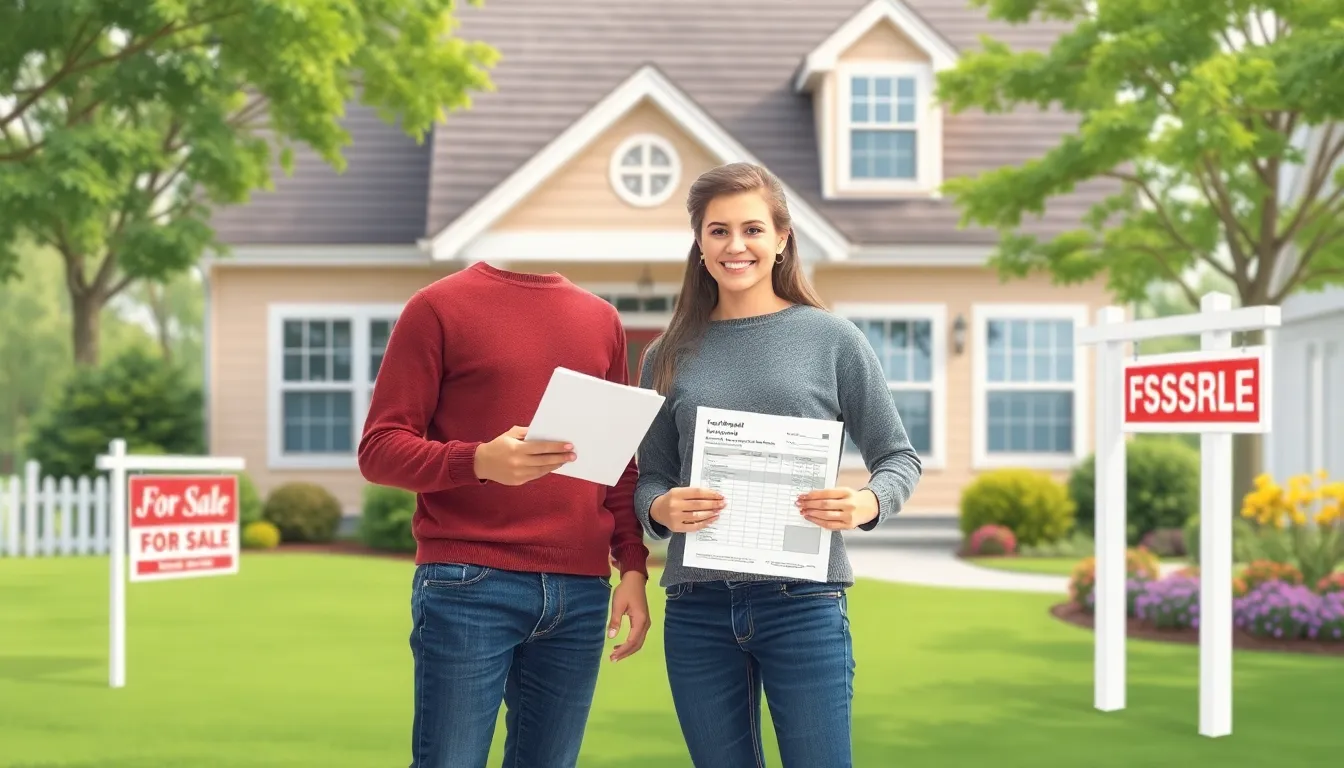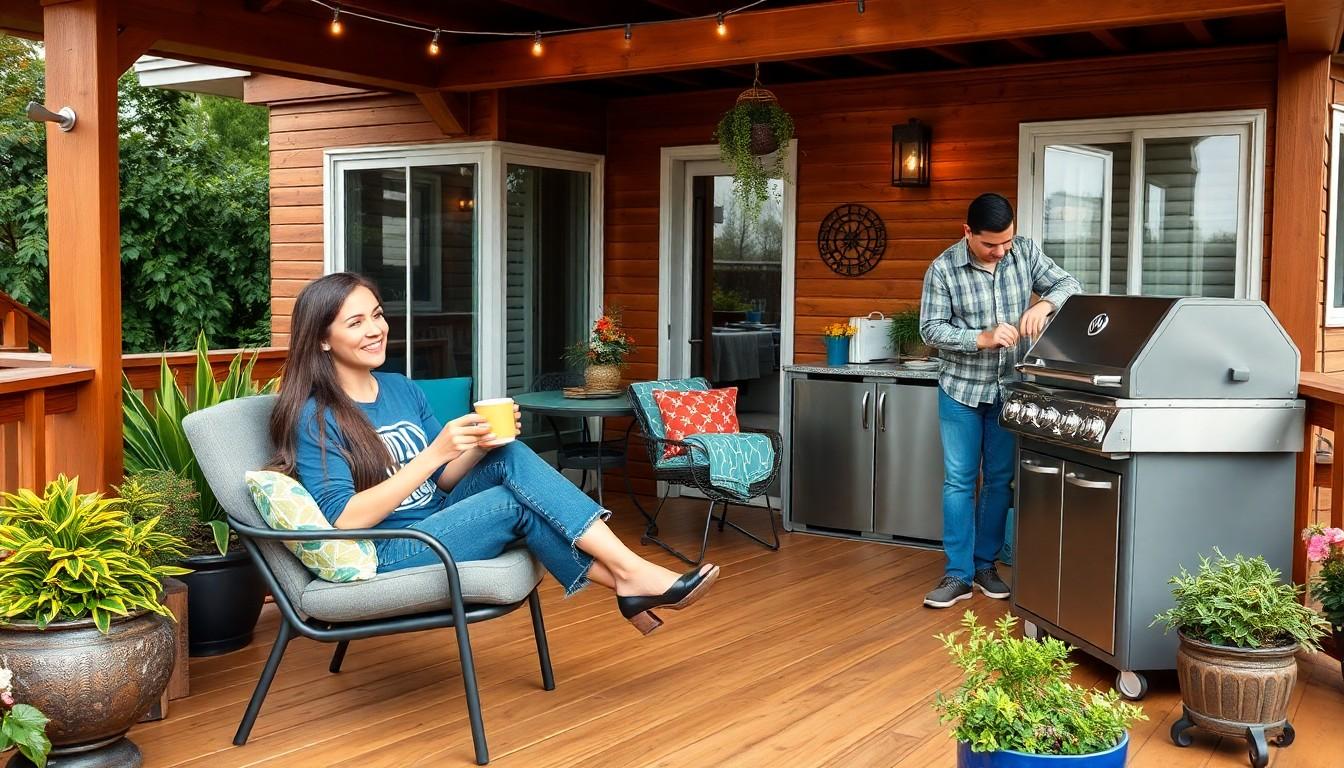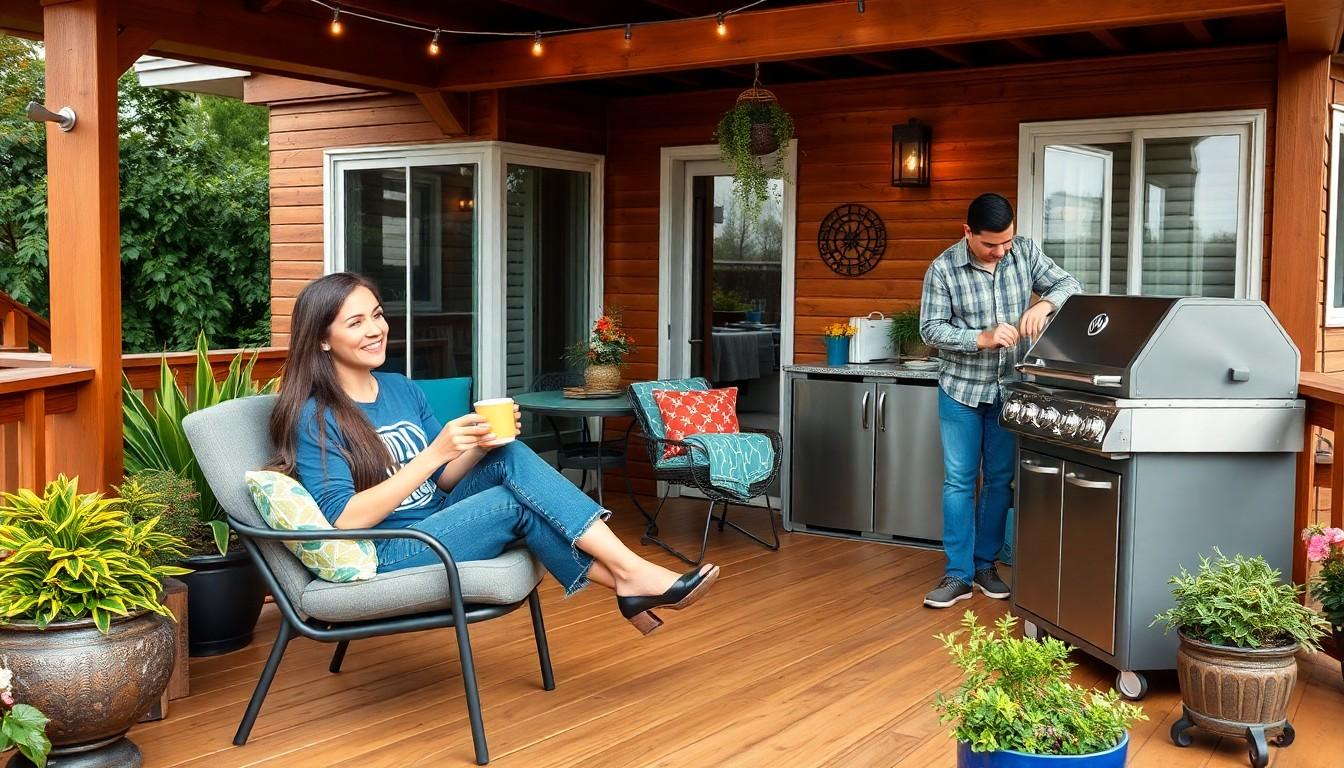Buying a home for the first time feels a bit like stepping onto a roller coaster—exhilarating yet terrifying. One minute, you’re daydreaming about cozy nights in your new living room, and the next, you’re faced with the reality of budgeting. Spoiler alert: it’s not just the down payment that’ll make your wallet weep.
Table of Contents
ToggleUnderstanding Homeownership Costs
First-time homeowners face multiple financial responsibilities beyond the initial excitement of purchasing a home. Awareness of these costs is essential for effective budgeting.
Initial Expenses
Initial expenses often create significant financial pressure. Closing costs typically range from 2% to 5% of the home’s purchase price. Inspections and appraisals provide insights into the property’s condition, costing anywhere from $300 to $1,000. Homeowners must account for moving expenses, which can include professional movers or truck rentals and supplies. Setting aside funds for immediate repairs ensures essential issues are addressed promptly. Preparation for potential renovations may require additional budgeting, as many older homes often necessitate updates.
Ongoing Expenses
Ongoing expenses also impact the homeowner’s budget consistently throughout ownership. Mortgage payments, including principal and interest, represent the most substantial monthly obligation. Property taxes typically account for approximately 1% to 2% of home value annually, affecting monthly expenditures. Homeowners’ insurance protects against unforeseen losses and often costs between $800 and $1,200 yearly. Utility bills, such as water, electricity, and gas, can also add hundreds of dollars to monthly costs. Regular maintenance expenses, estimated at 1% of home value annually, help preserve the property’s condition over time.
Determining Your Budget

Setting a clear budget is essential for first-time homeowners. By carefully evaluating available resources, individuals can avoid potential financial pitfalls.
Evaluating Your Financial Situation
Assessing income forms the foundation of a solid budget. Review monthly earnings along with expenses to gauge financial health. Calculate existing debts, such as credit cards or student loans, since they impact affordability. Factoring in credit scores will also clarify mortgage options. First-time owners should aim for a comfortable debt-to-income ratio, ideally below 36%. Establishing a savings cushion for emergencies adds security. Homeownership expenses can arise unexpectedly, thus preparing financially is crucial.
Factors to Consider
Consider initial costs when planning a budget. Closing costs usually range from 2% to 5% of the purchase price, which can be significant. Don’t overlook additional expenses like inspections, appraisals, and potential moving fees. Ongoing costs also need attention—mortgage payments represent the most considerable expense. Property taxes, often about 1% to 2% of the home value each year, must be factored in as well. Homeowners’ insurance provides vital protection, while utility bills and maintenance costs—averaging 1% of the home’s value annually—add to the monthly financial responsibilities.
Key Components of Homeownership Budget
Understanding the key components of a homeownership budget helps first-time homeowners prepare for the financial responsibilities. Consider the following expenses when planning.
Mortgage Payments
Mortgage payments consist of principal and interest. Monthly payments typically vary based on loan amount, interest rate, and loan term. First-time homeowners may find fixed-rate mortgages beneficial, providing stability in payment amounts. Lenders often evaluate a borrower’s credit score and debt-to-income ratio to determine eligibility. On average, homeowners pay about 30% of their gross income toward mortgage payments. Planning for this ongoing expense is essential to maintain financial health.
Property Taxes
Property taxes represent an important annual expenditure for homeowners. These taxes often range from 1% to 2% of a home’s assessed value. Local governments usually determine property tax rates based on community needs and services. First-time homeowners should factor these payments into their budgets to avoid surprises. In many cases, taxes can increase over time, affecting overall financial planning. It’s wise to estimate future tax obligations when selecting a home.
Homeowners Insurance
Homeowners insurance offers vital protection against damage and liability. Premiums vary based on home value, location, and coverage levels. On average, homeowners pay around $1,200 annually for coverage. Many lenders require insurance as a condition for mortgage approval. Homeowners should thoroughly review policies to ensure adequate coverage for their specific needs. This ongoing expense should also be included in the overall budget to provide peace of mind.
Maintenance and Repairs
Maintenance and repairs represent ongoing costs every homeowner encounters. Experts recommend budgeting approximately 1% of a home’s value each year for maintenance. This amount covers routine upkeep, such as landscaping and HVAC servicing. In addition, unexpected repairs can arise, necessitating a flexible emergency fund. Regular inspections can also help identify potential issues before they escalate. Adequate planning for these costs fosters long-term homeownership success.
Tips for First-Time Homeowners
First-time homeowners need practical advice to ease their transition into property ownership. They should focus on understanding expectations and budgeting effectively.
Setting Realistic Expectations
Realism in expectations plays a crucial role in homeownership. They should recognize that unforeseen costs beyond the down payment arise. Closing costs can range from 2% to 5% of the home’s price, so budgeting for these figures is essential. Assessing property taxes of 1% to 2% annually helps provide clarity on long-term expenses. Additionally, planning for repairs and maintenance, estimated at about 1% of the home’s value every year, ensures preparedness for future needs. Homeownership can surprise individuals, so acknowledging these factors can lead to a smoother experience.
Creating a Flexible Budget
Flexibility in budgeting accommodates life’s unexpected changes. It’s vital to account for all costs related to homeownership, including mortgage payments, insurance, and utilities. Setting aside funds for emergencies provides a safety net, allowing homeowners to handle unexpected repairs without stress. Regularly reviewing and adjusting the budget makes it easier to adapt to financial shifts. Effective budgeting involves crafting a detailed plan that considers both initial and ongoing expenses. Establishing a flexible budget can significantly reduce anxiety during the homeownership journey, fostering long-term financial stability.
First-time homeowners can navigate the complexities of budgeting with careful planning and awareness of their financial responsibilities. By understanding both initial and ongoing costs they can create a realistic budget that accommodates all aspects of homeownership.
Establishing a clear budget based on personal financial situations helps ensure that they remain within their means while preparing for unforeseen expenses. With a flexible approach to budgeting and regular reviews, homeowners can achieve long-term financial stability and enjoy their new space without unnecessary stress. Embracing this proactive mindset is key to a successful homeownership journey.



